Showing 171–180 of 270 results
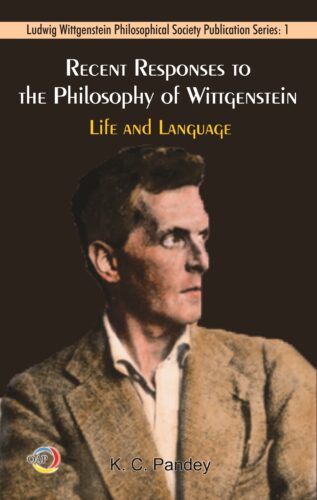
The book gives a fresh interpretation from the perspectives of recent issues raised on life and language in the philosophy of Wittgenstein. The essays contained in this anthology explore philosophical issues that have been raised during recent debates and discussions in Wittgensteinian epistemology, theology, logic, ethics, religion, social science, cultural studies, psychology and language.
The essays contained in this anthology explore philosophical issues which have often been raised during recent debates and discussions in Wittgensteinian epistemology, theology, logic, ethics, religion, social science, cultural studies, psychology and language. It is based on the idea that Wittgenstein’s thoughts have not only been interpreted by the academicians in philosophy, but have been used as a method in many other fields of Humanities and Social Sciences as well. Keeping in view this idea, the book gives a fresh interpretation from the perspectives of recent issues raised on life and language in the philosophy of Wittgenstein. It discusses Wittgensteinian issues through the perspectives of the Indian as well as the contemporary world.

This book, a translation of Sage Narada’s Narada Bhakti Sutra, is didactic and religious in spirit, and is an intellectual attempt to elucidate two approaches to bhakti, one for the intellectually inclined and the other for the emotionally inclined. It has many more facets that relate to personal experience of that Supreme Love by which bhakti is defined.
The Narada Bhakti Sutra is didactic and religious in spirit, but this new translation and interpretation by Dr Alka Tyagi is an attempt to elucidate bhakti in all its facets without the need for the religious paraphernalia. The focus of this text is to reveal bhakti as a methodical approach that can lead to an experience of Supreme Love by which it is defined.
There are two streams of thought that go hand in hand in the text. The first line of thought indicates bhakti (the Supreme Love) as a progressive path towards a goal. The second line of thought conveys bhakti as a path which is simultaneously the goal as well. For those who are clearly emotionally inclined, it is easy to choose the second line of thought where bhakti is the goal itself.
Those who are intellectually inclined might find it difficult in the beginning to exercise unconditional love. For them, the first line of thought will work better. They can consciously choose bhakti (the path of love) as a step by step progressive path towards fulfilment and joy in life. For them, the rules of truth, non-violence, non-duality along with the rituals of ekadasadha-bhakti (the elevenfold bhakti) as prescribed by Sage Narada could be helpful techniques.
Bhakti, whether it is adopted as a process or is taken up as a goal, is a means to direct the emotional energy in every human being in a positive direction in order to experience and attain fullness in life.

Various articles in this anthology have successfully explored folk psychological notions as found in contemporary Western Philosophy of Mind in the Indian context. These collective reflections on the nature of Indian folk psychology are bound to enrich our understanding of the mind in Indian philosophy.
Reconstructing Folk Psychology is the outcome of a research that looks into the possibility of locating folk psychological structures and issues within the domain of classical Indian philosophy. Starting from the concepts of belief, desire to perception and the consciousness of time and even the way in which we address ourselves, the I, the authors of the various articles in this anthology have successfully explored folk psychological notions as found in contemporary Western Philosophy of Mind in the Indian context. This volume thus tries to locate and reconstruct folk psychological issues within Indian philosophy, paying particular attention to the classical Indian tradition.
Needless to say, each of the authors in this volume is an expert in his or her respective area and these collective reflections on the nature of Indian folk psychology are bound to enrich our understanding of the mind in Indian philosophy.
This short but interesting book should capture the interest and attention of who is who in the domain of Indian philosophy and psychology.
This anthology, consisting of fourteen essays, deals with a variety of themes that are of central importance for an authentic appreciation of the philosophical core of the Indian culture. The readers will find here illuminating discussions on various issues that bear witness to the critical thinking and deep reflection on the part of the author that have enabled her to carefully expose the subtle internal divergences that nourish the Indian conceptual world.
Based on arduous and painstaking research, these essays focus on a range of topics. There are several essays on multiple aspects of the large themes of time and consciousness, penetrating analysis showing how in the ancient discourse ideas of klesha (affliction), abhyasa (practice) and karuna (compassion) as well as on women and values are dealt with. There are also deliberations on the themes of religious diversity and the need for an encounter of world religions along with the attempt to explore India’s self-image. All these have contemporary relevance, as these essays clearly bring out the distinctive character of a living culture.
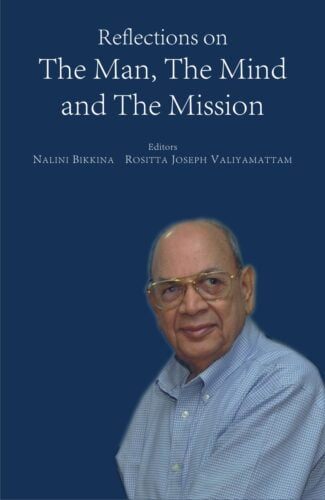
This Festschrift contains reminiscences, reflections, special messages and papers by scholars and academicians from around the globe who are familiar with Prof. K. Ramakrishna Raos epoch-making contributions; and memoirs of Prof. Rao titled Wide Open Horizons: A Short Story of My Tryst with Destiny, an intellectual delight.
Reflections on the Man, the Mind and the Mission; a Festschrift on the 85th Birthday of Koneru Ramakrishna Rao is a humble tribute to Prof. Koneru Ramakrishna Rao, one of the tallest scholars of our times. This Festschrift contains reminiscences, reflections and papers by scholars and academicians from around the globe who are familiar with Prof. Raos epoch-making contributions. The book also contains special messages from luminaries in diverse disciplines who are friends and admirers of Prof. Rao. Scholarly reviews of some of his most recent books have also been included. The volume concludes with the brief memoirs of Prof. Rao titled Wide Open Horizons: A Short Story of My Tryst with Destiny, an intellectual delight.
Prof. Rao is a scholar, philosopher, scientist, educationist, leader and visionary with an incredible ability to live his amazing dreams. He dabbles with the intricacies of Psychology and Parapsychology, Philosophy and Yoga, Consciousness Studies and Gandhian Thought, Educational Administration and Information Science, with equal ease and astounding finesse. And above all, here is a man untouched by time. In his 85th year, he is more active than ever before, enriching academia and society at large with his erudition and philosophical acumen, profound thought and most exemplary leadership. The year 2017 will see the publication of his five remarkable volumes.
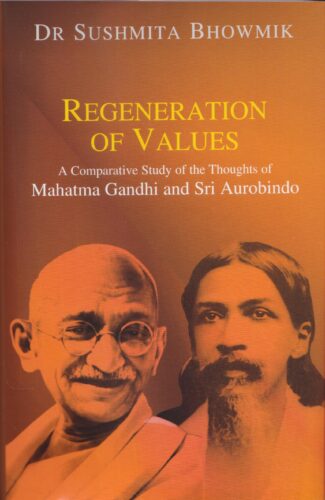
This volume makes a comparative study of the different values and approaches, philosophized and propagated by Mahatma Gandhi and Sri Aurobindo not only for the social, moral, political and spiritual life of Indians, but also for the benefit of the entire mankind.
Regeneration of Values: A Comparative Study of the Thoughts of Mahatma Gandhi and Sri Aurobindo reflects upon the different concepts of social, moral, political and religious values philosophized and propagated by Mahatma Gandhi and Sri Aurobindo.
Both these two great thinkers of nineteenth-twentieth century India tried to reconstruct the social, moral, political and spiritual life of the entire mankind through the revival of the ancient social and cultural values of India. However, the means adopted by them towards such regeneration of values were different in many respects. Here an attempt has been made to make a comparative study of their concepts of the different values as well as the approaches taken by them.

The book explains Samkhya philosophy through expositions/ interpretations of Samkhya works and authors. Tracing Samkhyas growth from sage Kapilas time to fifth century ad, it highlights various interesting aspects of Samkhya tradition.
Samkhya is the oldest among Indian philosophies. Rather, it had for long been synonymous with philosophy itself. Over the centuries, it has influenced all other Indian schools: orthodox and unorthodox. At its metaphysical plane, Samkhya is dualistic realism holding out the doctrine of two ultimate realities: prakrti (matter, physical world) and purusha (self, spirit). As a time-honoured tradition, Samkhya has, at its base, a long line of complex, often baffling expositions/commentaries/inter-pretations. Which, authored by ancient thinkers and sages, gave it both varied meaning and content. The earliest available work in this line of writings is Ishvarakrishnas Samkhyakarika (fifth century AD) a standard classic celebrated for crystallising the whole Samkhya thought of its times. Ishvarakrishnas work, however, has not only overshadowed all earlier expositions, but also led modern scholarship to mistakenly view the beginnings of Samkhya philosophy with nothing beyond Samkhyakarika. Professor Lallanji Gopal here dispels this and other widely-prevalent misconceptions. The book reconstructs anew the pre-Ishvarakrishna history of Samkhya. And also, for the first time, evolves a chronological sequence of all its landmark works and their authors. Meticulously tracing the historical development of Samkhya thought: from its genesis with the legendary Kapila to its standardised formulations in Samkhyakarika, Professor Gopal shows how Samkhya has never been a monolithic system, nor has its growth been unilinear; how it has had an interesting history of changes, vital shifts, introduction of new details, debates, and even polemics; and, finally, how Ishvarakrishnas work is the culmination of classical Samkhya, and not its beginning as most modern scholars have come to believe. Authenticated by an astonishing mass of literary sources, the book is bound to fascinate scholars and discerning readers alike.
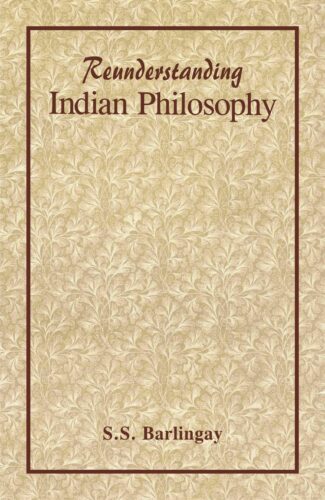
The book discusses the problems raised by the classical systems like Carvaka, Jain, Buddhism, Nyaya, Vaisesika, Samkhya, Yoga, Purva Mimamsa and Vedanta. It establishes epistemological, metaphysical and axiological significance of Indian philosophy, offering a unique insight.
What is Philosophy? Is it determined by any geographical boundaries? Does it emerge out of cultural patterns of the society? With such and other basic questions Prof. Barlingay analyses the concepts theories and trends in philosophy as they have developed in our sub-continent over the ages. Although this account of philosophy is called Indian he emphasises that the issues discussed by the ancient and medieval philosophers are essentially abstract and there is nothing Indian about this philosophy exclusively. Moreover, the understanding of Indian philosophy that has emerged in the past two centuries owes its direction and commitment to Indologist of Western orientation. Prof. Barlingays aim is to overview the Indian philosophy as presented by ancient and medieval philosophers and not the re-routed interpretation. Hence, he refers to it as a Re-Understanding. In this challenging endeavor Prof. Barlingay has discussed in-depth and critically the basic issues and problems raised by the orthodox and unorthodox systems like Carvaka, Jain, Buddhism, Nyaya, Vaishesika, Samkhya, Yoga, Purva Mimamsa and Vedanta. The book is replete with his logical reasoning. Within its anthropological context the author establishes a epistemological, metaphysical and axiological significance of the Indian philosophy offering the reader a unique insight in the subject.
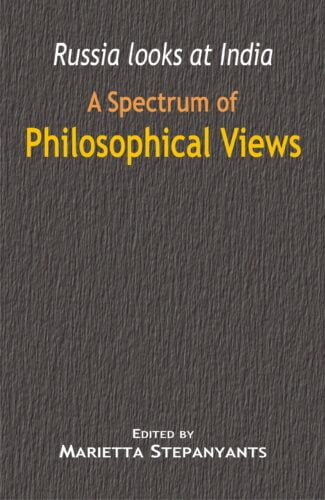
The book presents a collection of articles by Russian scholars on Indian culture, philosophy and religion, exploring the Vedas, Vaiseshika, Samkhya-Yoga and Mimamsa traditions. It also covers topics like modern interpretations of Vedanta, polemic of Vishishtadvaita and Advaita Vedanta.
This volume is a collection of articles, written by Russian scholars, on Indian philosophy, religion and culture. These articles explore key issues in the history of Indian philosophy, as well as the fundamentals of Indian religious thought and the problems of correlation between philosophy and religion in Indian tradition. The traditional schools of Indian philosophy, Samkhya and Yoga, Nyaya and Vaisheshika, Mimamsa and Vedanta, are analysed on the basis of their authoritative textual sources. Among other texts, Sankaras Brahma-sutra-bhashya and Ramanujas Gita-bhashya are studied in depth, with a special emphasis on the polemic between Vishishtadvaita and Advaita Vedanta. The later syncretic Nyaya-Vaisheshika is investigated on the basis of Annam Bhattas Tarkasamgraha and Tarkadipika as much as a critical analysis of Buddhist philosophy is undertaken through Shantarakshitas Tattvasamgraha. The modern Indian philosophy is also represented by highlighting the legacy of prominent personalities like Muhammad Iqbal and Sarvepalli Radhakrishnan. Due attention is given to the philosophy of non-violence of Gandhi and its relevance to the current problems of humankind. A comparative turn is represented by a paper on Leo Tolstoy and Sri Ramakrishna.
The book, as a whole, is an attempt to demonstrate the range and quality of contemporary Russian scholarship on Indian philosophical tradition and culture.
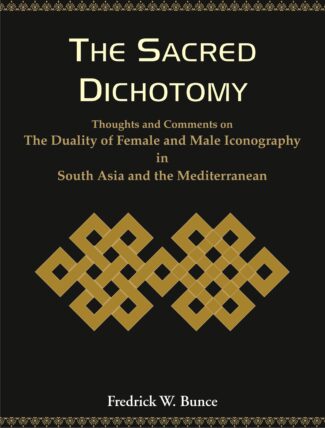
This work examines the dichotomy of the male and female principles in South Asian and Mediterranean religious and cultural traditions: Hindu (Sanskritic), Buddhist, Greek, Latin and Western mystical traditions. It is a comparative study that explores the roots and nature of the dichotomy of the sexes in these traditions by delving into the sacred in terms of myth, concept, imagery and symbols. The book will be useful to all interested in comparative religion and cultural studies.
With numerous illustrations, this work examines the dichotomy of the male and female principles in South Asian and Mediterranean religious and cultural traditions: Hindu (Sanskritic), Buddhist, Greek, Latin and Western mystical traditions. It is a comparative study that explores the roots and nature of the dichotomy of the sexes in these traditions by delving into the sacred in terms of myth, concept, imagery and symbols. With extensive notes, it presents drawings of more than 60 symbols and concepts revolving around the male and the female principles. With sharp insights and reflecting painstaking research, it delves into the rich and complex meanings attached to the moon, sun, dark/light, phallus, rose, svastika, womb and weapons in various religions. The discussion shows the dichotomy of the sacred in all major religions, mostly the male being elevated and the female made subservient. It explains how dichotomies are all embedded within cultural icons and the dualism is often based upon a localised concept of a good and evil, or a right and wrong, polarity. The book will be useful to all interested in comparative religion and cultural studies.
| There are no products |